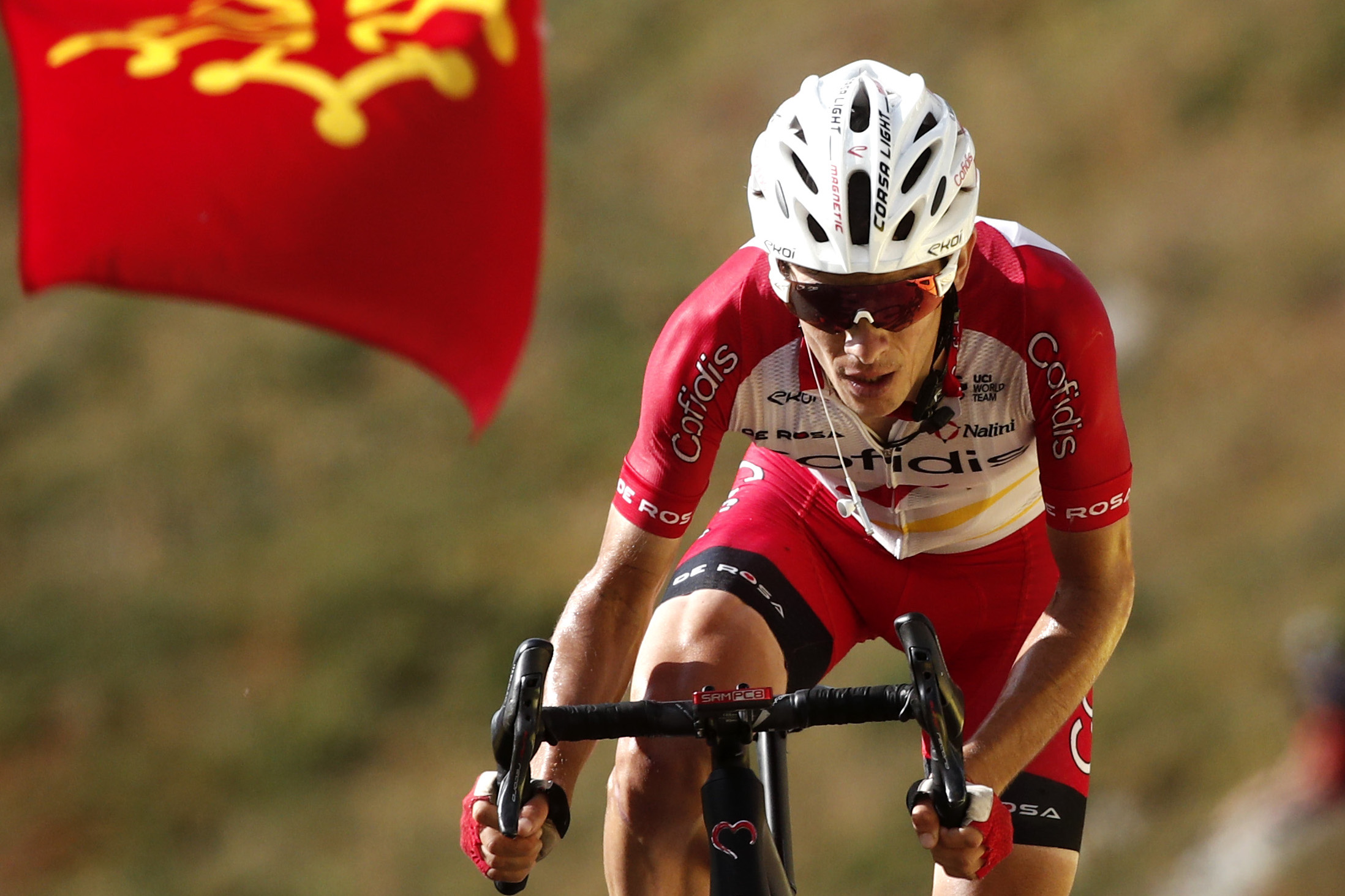Guillaume Martin asks if global warming will force the Tour de France to change dates
'My way of life is more polluting than that of an average person'

While the UCI, teams and race organisers take some timid first steps to consider their environmental impact by signing up to a Climate Action Charter, Cofidis rider Guillaume Martin has warned that global warming could massively impact the sport, asking if the Tour de France can continue to be held in July if European summers become hotter and hotter.
“We are experiencing a big, very big, problem,” Martin warned in an interview with the Reporterre environment action website.
“I’m not sure that the Tour de France can continue to be held in July. It’s dependent on (protecting) the health of riders and spectators.”
High temperatures forced the Tour de France organisers to take action last July, with plans to spray water on melting road surfaces and introduce extra feed zones. The UCI’s Extreme Weather Protocol protects riders from high temperatures as well as snow and cold weather and so could lead to the cancellation of races due to extreme heat.
In June, a stage of La Route d'Occitanie in the southwest of France was cut to just 36km after local authorities issued a red alert for temperatures close to 40°C. Riders quit the Tour de Suisse and Tour of Slovenia due to heat stroke, with many now wearing ice-vests before race starts, putting ice-socks on their necks and jumping into ice-baths post race.
Martin recalled his own problems with the heat at the Vuelta a España last year.
“For several days, we went through incredible heat, particularly in the south of Spain. I remember a stage where, for five hours, my thermometer did not drop below 33°C,” Martin revealed.
Get The Leadout Newsletter
The latest race content, interviews, features, reviews and expert buying guides, direct to your inbox!
“I wondered what I was doing there, making extreme efforts in extreme temperatures while the authorities had advised people to stay indoors to stay at home.”
A report compiled by nZero for the Tour of Luxembourg found that 49% of emissions associated with the race came from teams, mainly due to travel to and from the race, while the biggest source of organiser emissions come from race vehicles and helicopters for television broadcasts.
Stage 10 of this year’s Tour de France was blocked by a group of protestors demanding action against climate change, raising awareness in the peloton and the sport.
The UCI described its Climate Action Charter as “an important stepping-stone before sustainability obligations are formalised over the coming years. By signing the UCI charter, federations, men’s and women’s WorldTour teams and major race organisers like ASO, Flanders Classics and RCS Sport have committed to measuring and reporting emissions to internationally recognised standards. They will also take further action to reduce waste and energy demands.
Martin fears it may not be enough.
“It’s clearly necessary to amend the way we organise the major races. Do we need so many cars in a cycle race, such a long advertising caravan ahead of the race? We like to be entertained, but we can probably entertain ourselves in a more reasonable way.”
Martin accepted that professional riders' frequent travelling is not good for the environment and questions if they can do more.
“My way of life is more polluting than that of an average person,” he said.
“I spend 200 to 250 days away from home a year. That doesn't mean I fly every day, but still, it's the preferred mode of transportation, it saves the most recovery time and so allows us to achieve great performance in a race, to pedal faster the next day.”
“This is the whole paradox of the sport. Often the bike ends up on the plane. There are 180 riders in a race but there are as many, if not more, vehicles such as the publicity caravan and the directors' cars that follow us. We’re supplied with products wrapped in plastic, such as energy bars. In training, I try to prepare them myself, but in the race it's impossible.
“There is slowly more awareness and efforts are being made. We try to find the lesser evil, with electric cars and by taking the train a little more. But is it enough? I’m not sure.”

Stephen is one of the most experienced member of the Cyclingnews team, having reported on professional cycling since 1994. He has been Head of News at Cyclingnews since 2022, before which he held the position of European editor since 2012 and previously worked for Reuters, Shift Active Media, and CyclingWeekly, among other publications.